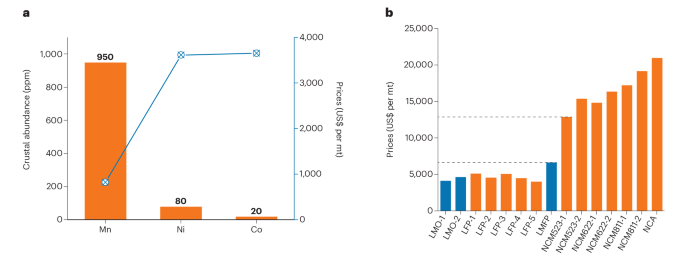Retaining Talent in Food Manufacturing: Why Culture, Communication, and Creativity Matter More Than Ever
By Andrew Openshaw, SEO & Content Specialist, Nigel Wright Group Key takeaways: Culture, purpose, and wellbeing are now just as crucial as pay in retaining food manufacturing talent — employees […]


By Andrew Openshaw, SEO & Content Specialist, Nigel Wright Group
Key takeaways:
- Culture, purpose, and wellbeing are now just as crucial as pay in retaining food manufacturing talent — employees want to feel valued, supported, and part of something meaningful.
- Career growth, flexibility, and inclusion are powerful retention tools — offering real development paths, adaptable work arrangements, and genuinely inclusive environments keeps people engaged and loyal.
- Strong communication and community involvement foster belonging — open dialogue, visible leadership, and local engagement help employees feel heard, connected, and motivated to stay.
Let’s face it — holding onto great people in food manufacturing has never been tougher. With rising costs, increased competition, and employees expecting more than just a paycheque, the old approach of “offer a bit more money” just isn’t cutting it anymore.
For smaller food and drink companies, where one person leaving can cause a real ripple effect, keeping hold of skilled staff is a must. When someone walks out, you’re not just losing a set of hands — you’re potentially delaying orders, draining morale, and racking up new recruitment costs. But here’s the good part: you’ve got more tools than ever to build loyalty. Culture, purpose, and strong food industry leadership are proving just as valuable as cash.
So, how are forward-thinking businesses tackling this? Here’s what’s working — and what you might want to try.
Why retention is the new must-win battle
Production lines are buzzing. Orders are flying in. The problem? There aren’t enough people to keep things moving.
Post-COVID changes, rising living costs, and record-low unemployment have all made hiring (and keeping) good staff that little bit harder. Warehouses and delivery firms like Amazon or DHL are scooping up workers by offering higher wages. Meanwhile, today’s workers want more — not just financially, but emotionally and mentally too.
That means the game has changed. Food manufacturers need to think bigger than salary. The real question is: how do you make people want to stay?
1. More than money: Build real career paths
Take dsm-firmenich in North Yorkshire, UK. They turned a 45% turnover rate into just 15% in three years — not just by upping pay, but by changing how they think about their people.
They cut back on agency staff and opened up new roles like “Lead Operator,” giving folks a way to grow without leaving. They showed their team they were worth investing in — and it paid off big time. Absences dropped, productivity shot up, and people actually started sticking around.
Try this: Look for ways to help people picture a future with you. Training, mentorship, or just better job titles with real meaning can make a world of difference.
2. Let culture do the heavy lifting
Food manufacturing is tough. Long hours, heavy lifting, fast pace. So, the vibe at work matters — a lot.
At Heck Food, culture isn’t an afterthought — it’s the whole plan. They hire based on values and potential, not just a list of skills. One of their best moves? Bringing in people from creative backgrounds, not just food. That fresh perspective sparks innovation and loyalty.
When someone messed up a packaging run, they didn’t get chewed out. The company turned it into a cheeky social media moment that got people smiling, inside and out.
Try this: Make your workplace one where people feel safe to mess up, speak up, and throw new ideas into the mix. Trust and openness go further than you think.
3. Wellbeing isn’t a perk, it’s the point
These days, staff want to know their wellbeing matters — and businesses that get this are winning at food recruitment.
At Bernard Matthews, wellbeing isn’t a poster on the wall. It’s baked into the way they operate. They’ve got a prayer and quiet room, better support for bereavement, mental health first aiders on-site, and even regular team check-ins focused on wellbeing.
They’re not just ticking boxes — they’re showing they care. And when people feel looked after, they tend to stick around.
Try this: You don’t need to build a wellness spa. Start small. Let people switch roles to keep things fresh, offer money advice sessions, or just check in regularly to see how folks are doing.
4. Rethinking flexibility, even in factories
We all know you can’t make sausages from your sofa. But that doesn’t mean flexibility’s off the table in food manufacturing recruitment.
Some manufacturers are trying four-day weeks, compressed shifts, and even job shares. One team had a returning mum and a student splitting a role — and it worked brilliantly.
Others are letting staff swap shifts more freely or save up extra leave. The point is: flexibility isn’t one-size-fits-all. But even little changes can boost morale and retention.
Try this: Ask your team what they think flexibility could look like. You might be surprised by how easy it is to meet them halfway.
5. Be part of the local story
If you want people to stick with your business, help them feel like they belong to something bigger. This is what great food industry recruitment looks like.
2 Sisters Food Group builds strong ties with schools and universities — running tours, offering internships, and making food careers feel exciting and real. Heck Food goes a step further, co-creating products with local kids. One primary school student came up with a lemon and honey sausage that actually hit the shelves.
Try this: Open your doors. Invite local schools in. Get involved with community events. If people see your business as part of their world, they’re more likely to want to join — and stay.
6. Inclusion that means something
At Nomad Foods, inclusion isn’t an HR buzzword — it’s a business driver, and a hallmark of strong food leadership.
They’ve got employee networks like the Rainbow Alliance and Women in Nomad helping create a workplace that actually reflects the world outside. Managers get trained on inclusive hiring, and job ads are written to attract a broader mix of talent.
It’s working. They’ve built a more dynamic, creative workforce that sticks around longer and works better together.
Try this: Make inclusion everyone’s responsibility. From interview training to inclusive job descriptions, the more welcoming your workplace, the more people will want to be part of it.
7. Speak up, and listen, too
Communication is a game-changer when it comes to keeping people around and fostering effective food industry leadership.
From team huddles to noticeboards, businesses are trying all sorts to make sure everyone — especially those on the shop floor — feels seen and heard. Some rotate office staff through the factory to build empathy. Others assign buddies to new starters or send out welcome packs before Day 1.
Try this: Make leadership visible and approachable. Even a quick “How’s your day going?” from a manager can go a long way.
It’s about leading differently
In today’s job market, where good people have loads of options, just paying well isn’t enough.
The businesses that are good at retention are the ones that get curious. They ask what makes people tick, and then they build around that.
The good news? You don’t need a massive budget. You just need a bit of creativity — and the courage to lead with heart.
Because at the end of the day, just like a great meal, it’s what’s inside that really counts.
 Andrew Openshaw is a UK-based writer and content specialist at Nigel Wright Group, a leading professional recruitment agency in Northern England and Europe’s top consumer industry search firm. Since 2011, he has crafted insightful content on HR and recruitment trends, providing industry professionals with expert analysis and thought leadership.
Andrew Openshaw is a UK-based writer and content specialist at Nigel Wright Group, a leading professional recruitment agency in Northern England and Europe’s top consumer industry search firm. Since 2011, he has crafted insightful content on HR and recruitment trends, providing industry professionals with expert analysis and thought leadership.
















































































































































